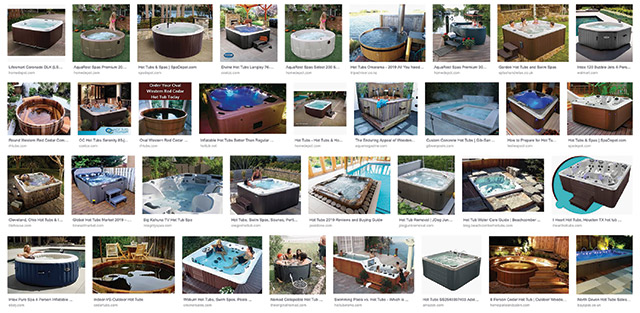by Scott Webb
Source: aquamagazine.com, May 2019
There was a time when someone contemplating a hot tub purchase had little more than personal experience to draw on. The prime source of hard information was the salesperson at the local retail store and the brochures that might be found there. Those days are long gone, of course. Now when a customer walks through the door, a salesperson regards a prospect armed with hours of website study.
Amazingly enough, one of the principal drivers of this change (along with convenience) has been trust. Many consumers put more faith in an anonymous internet site than a live human being standing before them. A recent study found a full 60 percent of consumers surveyed preferred not to interact with a salesperson as the primary source of information.
It’s been a dramatic change in the salesperson’s role in a short time, and
Dan Boelhauf seen it firsthand. He started in the leisure aquatic industry as a high schooler in the ’90s, sold spas retail in St. Louis for more than a decade before joining manufacturer Aspen Spas two years ago. Boelhauf runs the factory showroom and works as sales manager, assisting in new dealer development, dealer training and marketing.
UPSELLING THE EMPOWERED CUSTOMER
“I remember those days,” he says. “It used to be that people would come in for showroom research. And that still happens, but now in the age of the internet, most buyers do their research online and feel empowered with information they’ve gotten there. “They may have already made as much as 75 percent or more of the buying decision before they ever walk in a store. And they’re probably going to stick to their guns on that 75 percent because they trust what they’ve learned online.”
Encountering the customer at this point in the process, it’s the job of the salesperson to read the situation and evaluate the customer’s true level of confidence in the decisions already made from online research. Are they open to a larger model they might have mistakenly eliminated?
RELATED: How Swimming Pool Retailers Can Thrive In The Internet Age
At the same time, the salesperson can’t be too pushy, Boelhauf says. “That has turned off a lot of people, that old way of doing business where you use pressure and haggle and negotiate. And I think it’s unnecessary — nowadays I see more people who are ready to spend the money if they believe the product is good.”
An important factor in this interaction is the salesperson’s compensation structure — commission or non-commission. For a long time Boelhauf was on commission; only recently has he seen it from the other side, a perspective which allows him to step back a bit when necessary. “It [not being commission-based] gives us more confidence on the sales floor to be more adaptable to the customer. We’re not trying to get the biggest score on the commission scale. That’s taken out of the equation.”
“FREQUENTLY SOLD WITH THIS ITEM”
On the internet, customer upselling is automatic. Under the product you’re buying you will inevitably find a link to three products with the encouraging statement that other people felt it wise to purchase these items to go along with your selection.
Of course, salespeople do this, too, Boelhauf says. “It would be hard to find a salesperson who doesn’t offer a cover lift or steps after the sale. What I try to do in approaching the customer about options is to mentally move them forward, beyond the sale phase and beyond the honeymoon phase, to where they’re going to be six months or more down the road once the novelty wears off.
“My goal with each customer is for them to say, once the newness and the excitement wears off, ‘I wouldn’t have done anything differently.’
“That’s why I’m saying to a client after I’ve seen them really react to the spa lights in the showroom, ‘Maybe you really should add these $250 LED lights, because it seems like you really want them.’ Because in six months, I don’t want them to say, ‘You know, it was only $250. We really should have gotten those lights. We should have just spent the money.’
“Because we’ve all done that. We have a price range going in, and we stick to it, but later we say to ourselves, ‘I should have just gotten that extra thing that was a few dollars more.’”
“WE NEED THEM BACK”
One thing the internet age has profoundly changed for small, niche retailers is the need for repeat business. The internet facilitates the impersonal. It’s a world of cold, hard data that encourages customers to remain detached and remote from relationships and base buying decisions on images and text on a screen. For this reason, when a retailer has an opportunity to win a client’s trust and affinity — and thus future trade — the retailer has to make that count.
RELATED: Retailing In The New Age
Boelhauf echoes that idea repeatedly. “Because we do such a high volume of referral business, we have to focus on treating the customer right and setting their expectations correctly. And that means doing things the right way from the beginning — figuring out what they want and need and helping them get it.
“If you do that, then they’re going to tell people about it. It’s all about being honest, and honesty travels well. Sure, in the short term, there are cases where by being honest with the customer and making the customer’s needs your priority, you don’t come away with the maximum number of dollars. Maybe you could have made more money by being super aggressive, going hard at them every time.
“But on aggregate, just by being honest and giving the customer good information, I think you do better in the long term.”


